Multipolar mitosis of tetraploid cells: inhibition by p53 and dependency on Mos
- PMID: 20186124
- PMCID: PMC2857458
- DOI: 10.1038/emboj.2010.11
Multipolar mitosis of tetraploid cells: inhibition by p53 and dependency on Mos
Abstract
Tetraploidy can constitute a metastable intermediate between normal diploidy and oncogenic aneuploidy. Here, we show that the absence of p53 is not only permissive for the survival but also for multipolar asymmetric divisions of tetraploid cells, which lead to the generation of aneuploid cells with a near-to-diploid chromosome content. Multipolar mitoses (which reduce the tetraploid genome to a sub-tetraploid state) are more frequent when p53 is downregulated and the product of the Mos oncogene is upregulated. Mos inhibits the coalescence of supernumerary centrosomes that allow for normal bipolar mitoses of tetraploid cells. In the absence of p53, Mos knockdown prevents multipolar mitoses and exerts genome-stabilizing effects. These results elucidate the mechanisms through which asymmetric cell division drives chromosomal instability in tetraploid cells.
Conflict of interest statement
The authors declare that they have no conflict of interest.
Figures
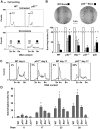
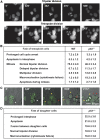
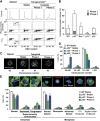
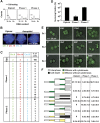
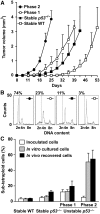

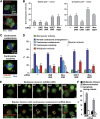
References
-
- Boveri T (2008) Concerning the origin of malignant tumours by Theodor Boveri. Translated and annotated by Henri Harris. J Cell Sci 121(Suppl. 1): 1–84 - PubMed
Publication types
MeSH terms
Substances
LinkOut - more resources
Full Text Sources
Other Literature Sources
Research Materials
Miscellaneous

